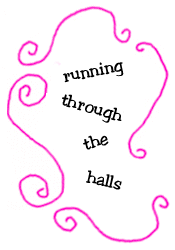 Q Dear Miss Abigail:
Q Dear Miss Abigail:
I work in a small shop and one of my coworkers whistles very loudly. Many of us have asked him to stop because we think it’s rude to expose us to the awful noise. Maybe if he sees it in print he will stop.
Signed,
Sam
A Dear Sam:
Ask, and you shall receive. How’s this for something to post on the shop bulletin board? I found it in Estelle Hunter’s fifth book in her Personality Development: A Practical Self-Teaching Courseseries, which was published in 1939 by the Better-Speech Institute of America.
My office is perfectly well-mannered, of course. Unless you think that the dog licking her privates while I write this is in bad form. Do you think I should have a talk with her?
1939: High Standards Must Be Maintained
![]() In order to create confidence and good will, a business organization must preserve an atmosphere of dignity and decorum. Many companies spend vast sums of money for advertising and publicity designed to inspire confidence and respect. With the same end in view stores and offices are artistically and expensively furnished and decorated. Much more important, however, is the impression created by the personnel of the company. If the appearance and manners of the employees are not in harmony with their surroundings, the effect is, to say the least, incongruous.
In order to create confidence and good will, a business organization must preserve an atmosphere of dignity and decorum. Many companies spend vast sums of money for advertising and publicity designed to inspire confidence and respect. With the same end in view stores and offices are artistically and expensively furnished and decorated. Much more important, however, is the impression created by the personnel of the company. If the appearance and manners of the employees are not in harmony with their surroundings, the effect is, to say the least, incongruous.
Those employees who meet the public should measure up to particularly high standards, but even those who have no contact with the public are expected to look, speak, and act in a manner that will raise and not lower the tone of the organization. This tone depends upon many small details. Only by keeping a constant check on ourselves can we be sure that we overlook none of them.
Behavior. The keynote of acceptable office deportment is dignity ~ not self-conscious dignity, but the reserve that accompanies attending to one’s own affairs in a serious, quiet manner. As one employment manager points out, ‘The office manual would have to be an entire library if it gave insructions on every item of behavior. We have to expect employees to possess at least a minimum of manners.’
Here are a few samples of the bad manners objected to by office managers:
Sitting on desks
Running through the offices or in the halls
Eating in the office
Chewing gum
Manicuring nails in the office
Putting on make-up in the office
Humming or whistling at work
Playing practical jokes during office hours
Anything that interferes with your work or another’s or that destroys a businesslike atmosphere is a violation of business etiquette.![]()
Source: Hunter, Estelle B. Personality Development, Unit Five: Your Way of Life. Chicago: The Better-Speech Institute of America, 1939.
~ pp. 76, 78-79 ~